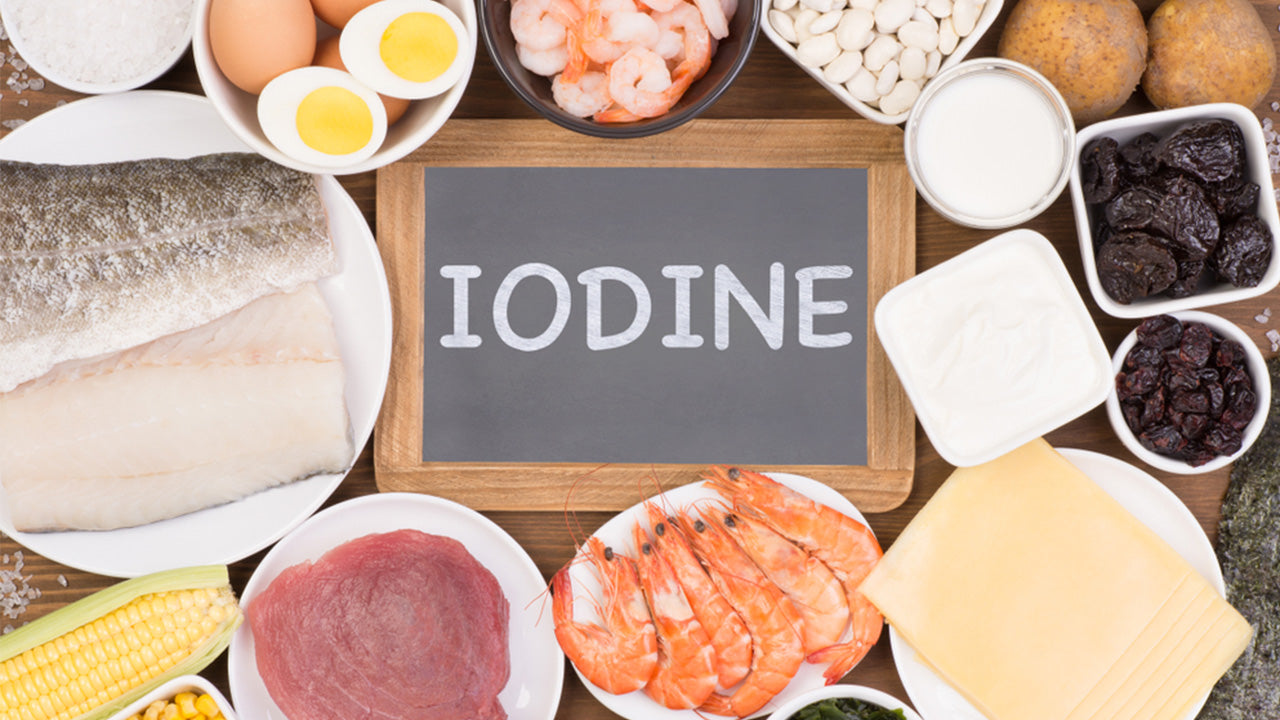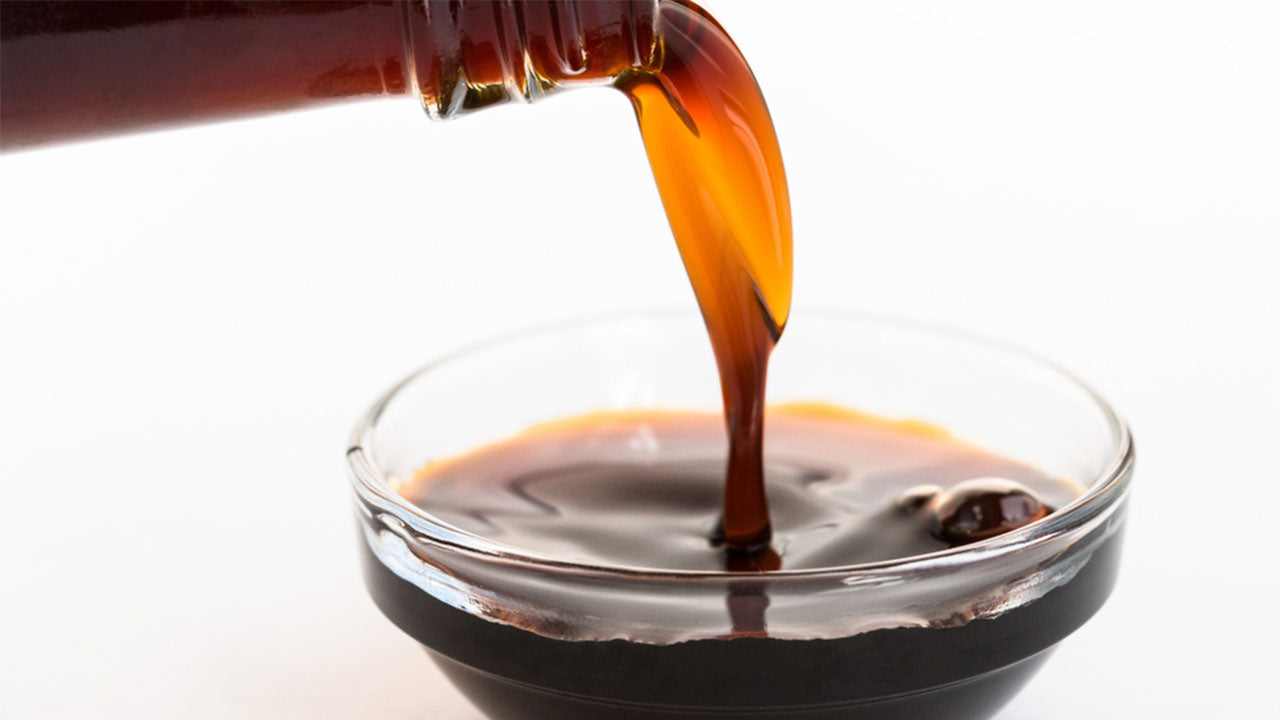The Ulcerative Colitis Diet Plan: Best and Worst Foods When Living with UC
 By: by Amino Science
By: by Amino Science

If you're one of the nearly million of Americans living with ulcerative colitis, a type of inflammatory bowel disease, you may be looking for an ulcerative colitis diet that gives you the essential vitamins and nutrients you need but doesn’t worsen the inflammation and discomfort that goes with your condition. While food isn’t a cure-all for any disease, it can help you minimize your symptoms of ulcerative colitis and boost your overall health. Here is an overview of the best and worst foods to eat when you’re living with ulcerative colitis.
A Quick Look at Ulcerative Colitis
Ulcerative colitis (UC) is a chronic, inflammatory disease that causes inflammation and ulcers in your digestive tract, specifically your large intestine. It is one of the most common inflammatory bowel diseases along with Crohn’s disease. The exact cause of ulcerative colitis is unknown, but experts have determined that it manifests when your immune system mistakes healthy tissue and food as harmful and begins attacking your intestines.
Ulcerative colitis symptoms include diarrhea, abdominal pain, persistent urge to have a bowel movement, rectal bleeding, appetite loss, weight loss, fatigue, and fever. You may be able to identify what trigger foods cause your UC to worsen. Following a certain diet can be the best treatment option for reducing flare-ups and maintaining a healthy digestive tract.
Best Foods for Ulcerative Colitis
A nutrient-rich, balanced diet supports your overall health and reduces the discomfort associated with ulcerative colitis.
Oatmeal
Start your day with oatmeal, an easily digestible breakfast that will keep you full longer. Oatmeal is a high-fiber food, so if you’re on a low-fiber diet, choose the instant variety instead of steel-cut. You want to avoid mixes high in sugar. Instead sweeten your bowl with cinnamon, fruit, or a spoonful of honey.
Salmon
Packed with omega-3 fatty acids, salmon helps lower inflammation, raises good cholesterol levels, and promotes your overall health. Other good sources of omega-3s include walnuts, flaxseed, and albacore tuna.
Avocado
If you are trying to pack on some pounds in a healthy way or looking for a good source of beneficial fats, give avocados a try. Substitute for mayonnaise on your sandwich, spread it on your toast, or add avocado to a salad or side dish.
Squash
Adding squash to your diet is an easy and delicious way to get needed vitamin C, antioxidants, fiber, and beta carotene. Available in many varieties, squash helps soothe inflammation, encourages the repair of damaged tissue, and supports good gut bacteria. Try dicing, shredding, or mashing acorn, spaghetti, zucchini, or butternut squash.
Yogurt
Yogurt, sauerkraut, kefir, and miso contain probiotics that help support proper digestion and boost immune health. These foods contain active, live cultures that nourish the good gut flora that is needed for a healthy digestive system. Avoid high-sugar options by choosing unsweetened or plain varieties.
Applesauce
Unsweetened applesauce, either from the store or homemade, adds potassium, fiber, and other valuable vitamins to your diet. Flavor it up with cinnamon or by mixing in berries, and incorporate applesauce into your favorite baked recipes.
Eggs
Easy to digest and packed with protein, eggs are a quick meal any time of day. Full of vitamins, protein, and antioxidants that help combat inflammation, eggs are a good addition to a UC diet. Whether hard boiled, scrambled, or over easy, eggs make for a nutrient-packed addition to your weekly meal plan.
Lean Meats
When in search of low-fat protein options, look for lean meats such as pork loin, chicken, turkey, and sirloin. Read the package when selecting ground meat choices to ensure it is as lean as possible.
Bananas
Easy on the stomach and packed with vitamins, bananas can help with digestion because they have a smooth consistency and light flavor. Bananas are often recommended following the stomach flu as part of the BRAT diet, as they can help calm digestive upset and inflammation.
White Rice
Easy to digest, lower in fiber than whole grains like brown rice, and filling, white rice can be incorporated into your midday meal or dinner to help soothe UC symptoms. Follow the instructions on the box or bag for cooking softer rice.

Worst Foods for Ulcerative Colitis
When living with ulcerative colitis, you may find there are certain foods that cause your symptoms to instantly worsen. For instance, high-fiber options may be difficult to digest and cause more discomfort during a flare-up. Finding foods that are lower in fiber but still rich in other nutrients can help prevent irritation. Here are several foods you may want to avoid if you are living with UC.
Alcohol
Put that cork back in the wine bottle. Alcohol can cause the lining of your colon to become irritated, worsening inflammation and potentially leading to bleeding and bloating.
Non-Absorbable Sugars
Stay away from sugar-free foodstuffs like sugar-free gum and candy. They're packed full of sugar alcohols like sorbitol and mannitol and can cause bloating, gas, and diarrhea.
Tea and Coffee
While you may want a morning cup of joe, coffee and tea contain stimulants that push food through the colon at a much quicker rate, irritating the colon lining and possibly worsening symptoms. It is best to stick to non-caffeinated herbal teas if willpower allows.
Carbonated Drinks
Soda and carbonated water can cause gas and inflame your stomach and intestines. Plus, the added caffeine, artificial sweeteners, and sugar can be cause your UC to flare up.
Broccoli
You may be relieved to know you don’t need to eat your broccoli. This vegetable takes a long time to move through your digestive system and can lead to bloating and gas. All varieties, raw or cooked, are best to avoid if you have ulcerative colitis. Other raw fruits and vegetables can cause similar symptoms, so it's best to track consumption with a food diary.
Refined Sugar
While sugary foods are a delicious treat (who can stay away from a bowl of ice cream every now and then?), they are not a good addition to an ulcerative colitis diet plan. Processed foods with high sugar draw liquid from your digestive tract and speed digestion, leading to colon irritation and diarrhea.
Nuts
While they do make for a healthy high-fat snack, nuts and nut butters are often more difficult to digest and can clog up the colon. Want to take advantage of the healthy fats and nutrients in nuts? Choose ground varieties or make your own powder to mix into smoothies, butter, or other liquids.
Creamy Foods
Mac n’ cheese and pasta alfredo are undeniably tasty, but heavy creams and cheese can be very irritating to your digestive tract, leading to rectal bleeding and making ulcers more painful. It’s best to cut out margarine, butter, mayo, lard, and cream cheese when following a UC diet.
Speaking of creamy, lactose is a sugar found in dairy products like cream, soft cheeses, and milk, that can aggravate UC symptoms.
Spicy Foods
If you have colitis, you’ll want to turn down the heat by cutting out hot peppers and sauces. Spicy foods and hot sauce can lead to a flare-up by enraging the digestive system and causing diarrhea.
Sulfur Foods
Foods high in sulfur include soy, wheat bread and pasta, peanuts, almonds, cured meats and red meats, and wine and beer, all of which can lead to increased gas and bloating.
Cabbage and Brussel Sprouts
Brussel sprouts and cabbage are best to keep off your plate since they can be very irritating to your colon. Swap out these cruciferous vegetables for squash, carrots, and potatoes.
More Ulcerative Colitis Diet Tips
The best approach for determining ulcerative colitis foods to eat and avoid is to use a food journal. You will soon be able to identify which foods trigger symptoms and which foods seem to help. It may also help to eat smaller meals throughout the day.
Speak to your doctor or nutritionist to get helpful recommendations that will soothe your UC and provide the most vitamins and nutrients needed for optimal health.
You can also supplement your diet with calcium, folic acid, vitamin B12, and amino acids. Heal is an essential amino acid supplement that can help to calm inflammation and accelerate recovery from illness.
Ulcerative colitis does not have a cure but you can successfully manage your symptoms, support healthy digestion and immune function, and improve your quality of life by following good nutrition principles and a well-balanced diet plan.

Up to 25% off Amino
Shop NowTAGS: diet plans
Join the Community
Comments (0)
Most Craveable Recipes




 833-264-6620
833-264-6620



















